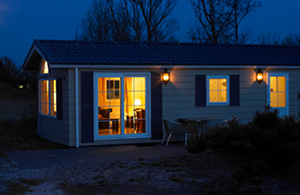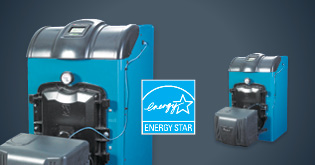
Why every homeowner needs a backup generator.
 When life is going on as normal, we don’t
really think about the ever-present risk of losing power. But we should! Thinking about it after losing power is too late. Losing power can have much bigger consequences than not being able to charge your cellphone or tablet for a few hours. If power
is out for a few days or weeks, damage to your property and even personal health issues can quickly become big problems. These reasons, and many more, are why every homeowner should strongly consider purchasing a backup generator. But before you do,
there are some important questions, answers and facts that should be considered.
When life is going on as normal, we don’t
really think about the ever-present risk of losing power. But we should! Thinking about it after losing power is too late. Losing power can have much bigger consequences than not being able to charge your cellphone or tablet for a few hours. If power
is out for a few days or weeks, damage to your property and even personal health issues can quickly become big problems. These reasons, and many more, are why every homeowner should strongly consider purchasing a backup generator. But before you do,
there are some important questions, answers and facts that should be considered.
Questions to ask before purchasing a backup generator.
- What appliances or devices do you need to keep up and running? – Do you work from home and need to keep your office up and running? Does someone in your household sleep with a CPAP machine? Do you have a hot tub that could freeze over if deprived of power? Are there any older people in your home who use a stair lift? If you answered “yes” to any of these questions, these are just a few instances that demonstrate how reliant you are on maintaining a constant stream of power. Don’t wait for an emergency to happen; install a backup generator!
- Do you live in an area that is prone to lots of storms throughout the year? – Severe storms are becoming more frequent and more powerful, developing more rapidly than before. If hurricanes, tornadoes, severe thunderstorms, or snow or ice storms occur regularly throughout the year where you live, then it is recommended to purchase a backup generator for your home. This will help prevent food spoilage and keep your heating or AC system and hot water tank operating normally.
- Do you live in a larger home? – Large homes are a lot more prone to experiencing burst water pipes during winter storm-related power outages. As the house cools down, the water in the pipes attached to it starts to freeze and expand. This causes the pipes to rupture, potentially causing thousands of dollars’ worth of damage. The only safe, practical way to protect a large home from burst pipes is to restore power—and heat—to the home with a whole house generator.
What generator is right for you?
When purchasing your generator, it’s vital to get the right one for you and your home. You have two options:
- Portable generators – These may cost less but do have limitations. You can expect to go through about 5 gallons of gasoline every 8 hours, usually can power only a few appliances and are not safe for indoor use.
- Standby or whole-house generators – These may cost more upfront but can be used safely and reliably in any weather. They can also power your home’s heating and cooling systems, along with other major appliances, have a lifespan of over 15 years and switch on automatically as soon as power goes off. If you live in a storm-prone area, a whole-house generator is a smart investment.
Other factors you need to think about before purchasing a generator.
Before installing any generator, it’s best to get a consultation from the company that you’re purchasing it from. This will help determine your specific
needs and ultimately get you the best solution for your home. Some important points to clarify when you have your consultation are:
- How many appliances you will want to run in the event of a power outage
- Determine the location of your whole-house or standby generator
- The type of fuel you want to use to run your generator – natural gas, diesel, or liquefied petroleum.
Now you know why you need a backup generator. Get yours today!
Having a generator helps prevent food spoilage, house fires, CO2 poisoning, and uncomfortable cold or heat. It can also help protect your property and appliances from
potentially costly damages. Start planning your generator consultation and give us a call today.



.jpg?sfvrsn=f899b5b1_1)
.jpg?sfvrsn=4d57d9b7_3)